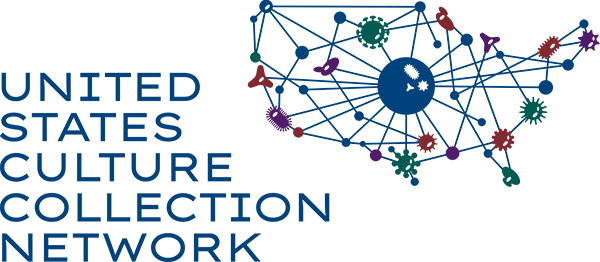NSF Research Coordination Network
USCCN 2.0 is funded by NSF grant #2124633. The overall goal of 2.0 is to build upon the accomplishments and activities from USCCN 1.0 and to further expand to make the USCCN more useful to U.S. and global users.
USCCN 2.0 focuses on making new connections and building relationships with current and new sources of culture and living collections. The specific aims of USCCN 2.0 are:
- Create and maintain an accurate and current database of all U.S. collections (via surveys).
- Initiate and develop a formal structure and membership for the USCCN.
- Develop and cultivate protocols, standard operating procedures, and other resources to aid in the maintenance and expansion for collections of all types and sizes.
- Develop infrastructure for orphaned or endangered collections.
- Foster alliances and collaborations with international collection efforts.
- Form links to the broader living collections community via communication plan.
- Establish a communication plan to support USCCN activities with emphasis on website and other virtual activities (blog, press releases, webinars, etc.)
- Engage small collections that are focused only on research (i.e., collections that are not aspiring to be distribution centers).
USCCN 1.0 (2012-2020)
The Research Coordination Network for ex situ Microbial Germplasm Collections, U.S. Culture Collections Network (USCCN) was formalized in 2012 with sponsorship by the National Science Foundation (NSF).
Since 2012, USCCN 1.0 has provided a unique venue for hosts and curators of living and research-focused microbe collections to promote best practices and to engage the larger living collection community broadly, nationally and internationally. USCCN has connected with about 40 collections, including collections of viruses, bacteria, yeasts and other fungi, and microalgae at universities and government agencies.
USCCN has held annual meetings covering various themes. The network has explored issues such as the use of organisms from culture collections in genome sequencing projects, the Nagoya Protocol, outreach programs, data standards, off-site cryopreserved backup services, and how to preserve endangered collections.
Collection personnel have traveled to visit other U.S. collections and to international culture collection conferences, and co-authored 12 peer-reviewed publications and book chapters about collections. USCCN has also served as a sounding board for collection personnel to compare collection management practices such as databases, websites, international shipping challenges, and new products and services.
In 2019, the network engaged with the International Code of Nomenclature of Prokaryotes on a proposal to allow genome sequences to substitute for a live organism as a type of material. The network submitted a written document detailing the impact of this proposed change and recommended that it not be approved. The International Committee on Systematics of Prokaryotes denied the proposed changes, in large part due to the input from USCCN.
Pre-USCCN
2012
- NSF announces its support for a Research Coordination Network (RCN) for a Community of ex situ microbial germplasm repositories
2011
- USDA-ARS continues to support the new National Plant Microbial Germplasm System both with financial input and physical infrastructure
- Submission of a Research Coordination Network proposal to NSF to link scientists nationally and internationally
- Workshop on collections management and practices (at APS 2011 Annual meeting)
2010
- Work with USDA agencies for funding support of a National Plant Microbial Germplasm System (NPMGS)
2009
- Draft of an initial proposal for distribution to various stakeholders based on the two workshop outcomes. The effort is now referenced as the National Plant Microbial Germplasm System (NPMGS)
2008
- Second international workshop for continued development of an action plan (with support of USDA and NSF)
2007
- Initial workshop to develop an action plan (with support by USDA)
